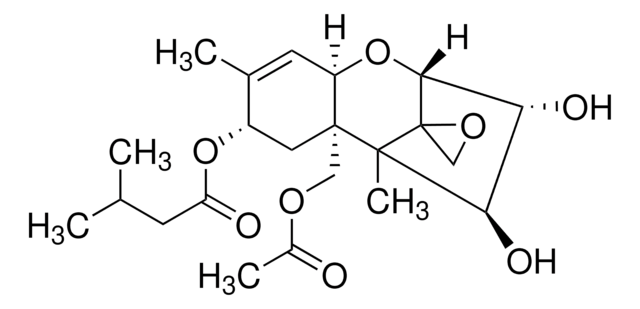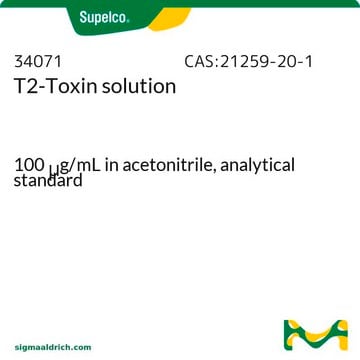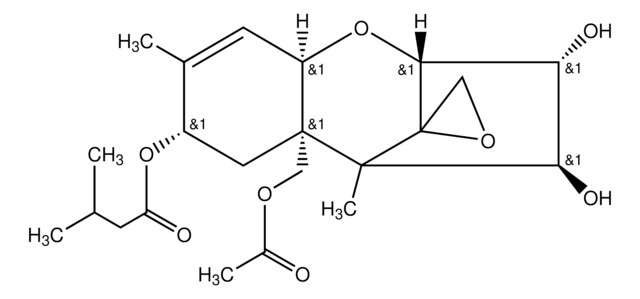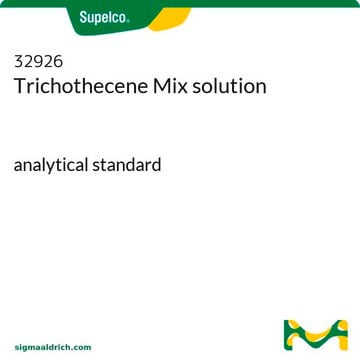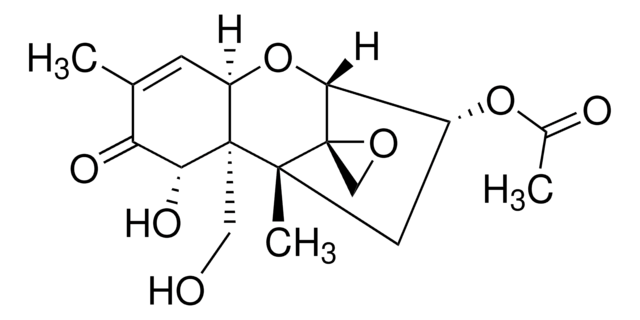32606
Fumonisin B3 solution
~50 μg/mL in acetonitrile: water, analytical standard
About This Item
Recommended Products
grade
analytical standard
Quality Level
shelf life
limited shelf life, expiry date on the label
concentration
~50 μg/mL in acetonitrile: water
technique(s)
HPLC: suitable
gas chromatography (GC): suitable
solubility
water: soluble
application(s)
cleaning products
cosmetics
food and beverages
personal care
format
single component solution
storage temp.
−20°C
SMILES string
CCCC[C@@H](C)[C@@H](OC(=O)CC(CC(O)=O)C(O)=O)[C@H](C[C@@H](C)C[C@H](O)CCCCCC[C@H](O)[C@@H](C)N)OC(=O)CC(CC(O)=O)C(O)=O
InChI
1S/C34H59NO14/c1-5-6-11-21(3)32(49-31(43)19-24(34(46)47)17-29(40)41)27(48-30(42)18-23(33(44)45)16-28(38)39)15-20(2)14-25(36)12-9-7-8-10-13-26(37)22(4)35/h20-27,32,36-37H,5-19,35H2,1-4H3,(H,38,39)(H,40,41)(H,44,45)(H,46,47)/t20-,21+,22+,23?,24?,25+,26-,27-,32+/m0/s1
InChI key
CPCRJSQNWHCGOP-ZBUYIUKQSA-N
General description
Application
Analysis Note
Signal Word
Danger
Hazard Statements
Precautionary Statements
Hazard Classifications
Eye Irrit. 2 - Flam. Liq. 2
Storage Class Code
3 - Flammable liquids
WGK
WGK 2
Flash Point(F)
42.8 °F - not determined
Flash Point(C)
6 °C - not determined
Personal Protective Equipment
Choose from one of the most recent versions:
Already Own This Product?
Find documentation for the products that you have recently purchased in the Document Library.
Customers Also Viewed
Our team of scientists has experience in all areas of research including Life Science, Material Science, Chemical Synthesis, Chromatography, Analytical and many others.
Contact Technical Service





